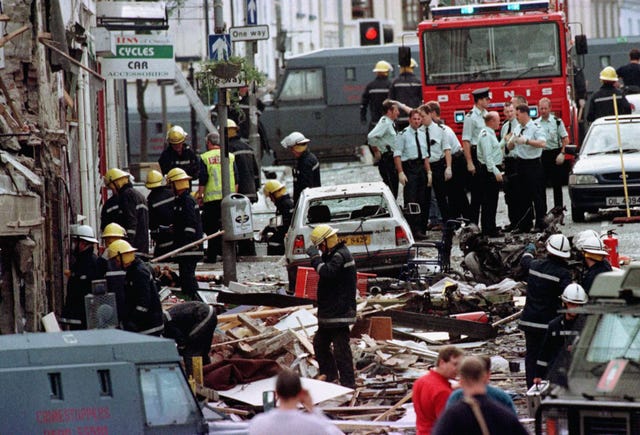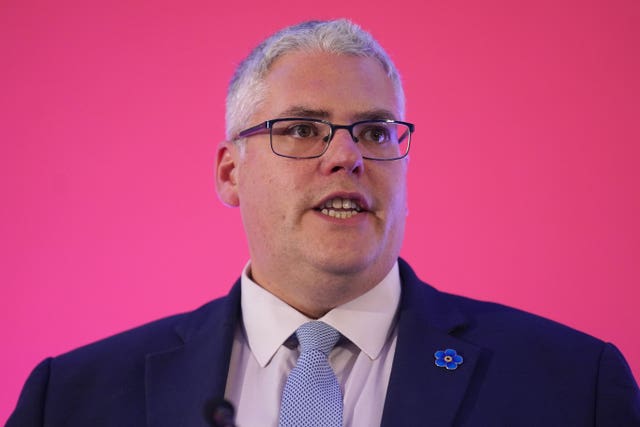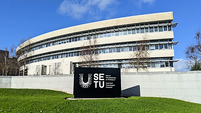Irish Government needs ‘determined process’ to release Omagh records

By Jonathan McCambridge, PA
There needs to be a “determined process” where the Irish Government makes available all information relating to the Omagh bombing, Baroness Nuala O’Loan has said.
The former police ombudsman told MPS that too often, assurances had been given by Dublin that information would be made available on terrorist incidents, but it was then not provided.
Lady O’Loan was giving evidence to the Northern Ireland Affairs Committee, which is investigating the UK Government’s approach to legacy issues in the region.

A public inquiry is currently examining whether the 1998 Real IRA bombing of Omagh, which killed 29 people, including a woman who was pregnant with twins, could have been prevented.
It was recently announced that a Memorandum of Understanding (MoU) had been agreed between the inquiry and the Irish Government to allow inquiry chairman Lord Turnbull and members of his team to access material held by the Irish State.
Taoiseach Micheál Martin has since said that gardai and others should testify at the Omagh Bombing Inquiry if requested.
However, some unionists have said the MoU is not sufficient and have said a parallel public inquiry should be set up in the Republic of Ireland.
Lady O’Loan told the committee that she saw the MoU as “indicative of a will to assist” by the Irish Government.
She added: “An awful lot of the crime which occurred, actually occurred in planning terms in the Republic of Ireland, and an awful lot of information is held in the Republic of Ireland, and it is a bit difficult to get that information out.
“I would have expected, and I said that the Republic should have established some sort of independent inquiry on Omagh to run parallel to our inquiry, because there is clear evidence that that bomb was planned down there.
“But this is repeated across many incidents in the Troubles.
“I think that there needs to be probably legislation in the south to enable the transmission of intelligence and information which the Republic holds.
“I think they would need some sort of commission which would, at the very least, assist the workings of whatever we end up with in terms of a legacy investigation commission.
“There are very difficult jurisdictional issues to that, there are difficult political issues to that, but we have to be innovative and find new ways.”

DUP leader Gavin Robinson asked Lady O’Loan if she believed the Irish Government should be doing an “awful lot more” to release information on Omagh.
She responded: “I absolutely do.
“It would have been remiss of An Garda Síochána if they had not been gathering intelligence and information about the activities of terrorists, IRA people in the jurisdiction.
“They were gathering such information, and it would be imperative that such information is shared.
“If we look at Omagh, we know that the bomb which came to Omagh and which exploded came up from the south.
“I think there has been too much of a process where assurances have been given that all information will be provided … but when you go back for the information, it is not provided.”
She said: “There needs to be a really serious look in the Republic of Ireland, and I know how difficult it is going to be, because I know the dynamics, the constructs, the context are difficult, but there does need to a determined process through which the records in the Republic of Ireland are made available when necessary so that the Omagh Bomb Inquiry can do its work.”
Mr Robinson said: “Baroness O’Loan’s support for further action by the Republic of Ireland highlights what victims and their families have long demanded, truth and accountability from all sides.
“The Irish Government must now confront its role in the events leading up to the Omagh bombing.
“This is not about blame, it’s about responsibility and respect for those who lost their lives.
“We cannot talk about truth and reconciliation with credibility if only the UK Government is scrutinised, especially when the bomb was planned, prepared and transported from the south.
“If there were gaps, missed intelligence or critical inaction, the Irish Government has a duty to be honest about that.”




